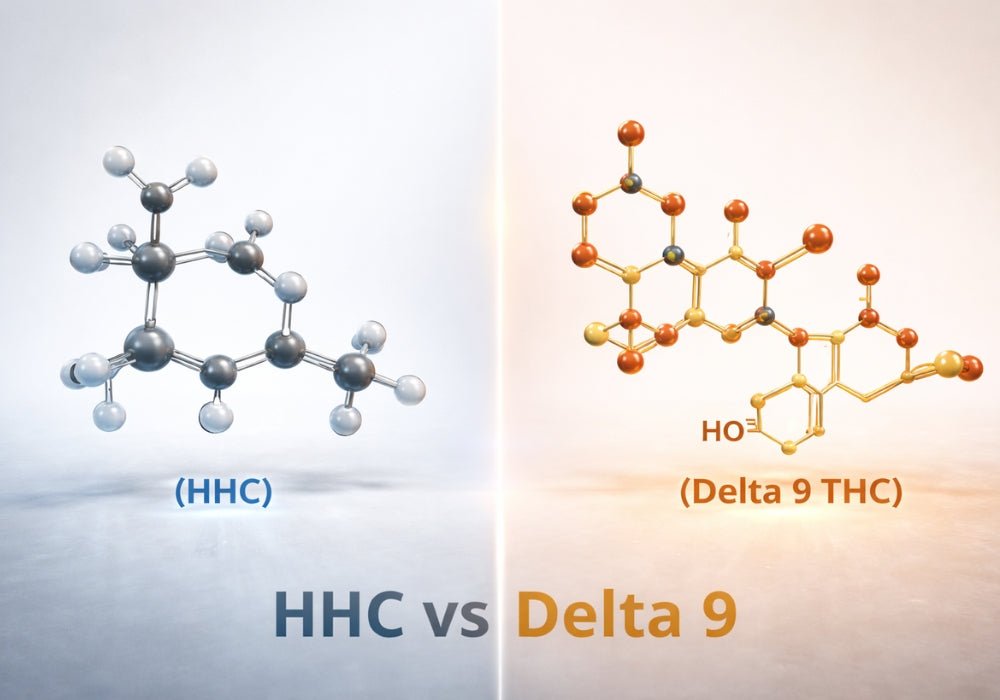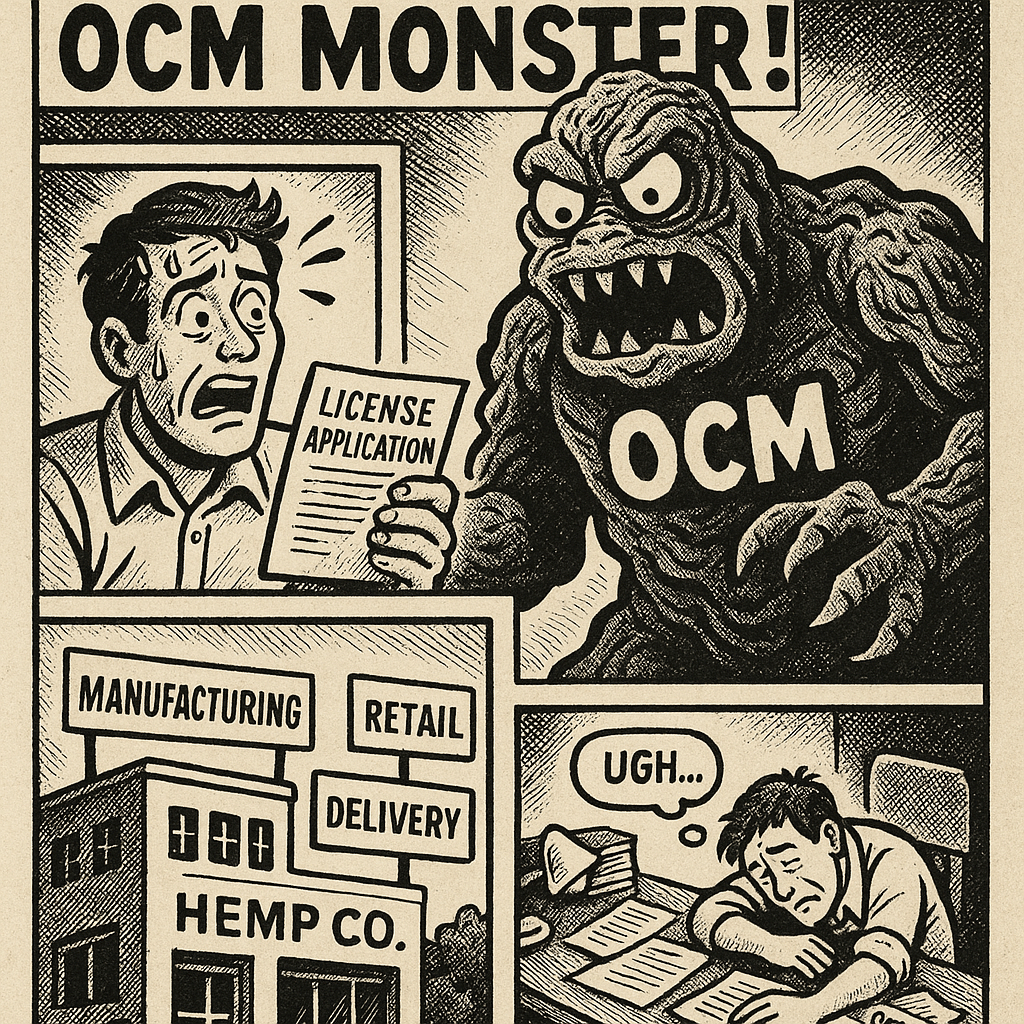The same week Coca-Cola, Nestlé, General Mills and Kraft Heinz were busy selling sugar, salt and ultra-processed everything to America, their trade association wrote Congress to warn about… hemp products.
You can’t make this up.
What the letter actually says (behind the pearl-clutching)
According to Marijuana Moment, the Consumer Brands Association (CBA) – whose members include Coca-Cola, Nestlé, General Mills, Kraft Heinz and Target – sent a letter to House and Senate leadership urging them to ban intoxicating hemp products by “closing the hemp loophole” in federal law. Marijuana Moment
Specifically, they want Congress to:
-
Support Rep. Andy Harris’s appropriations language to prohibit hemp products containing any quantifiable amount of THC
-
Target “intoxicating cannabinoid products” like delta-8 and delta-10 THC, claiming:
-
They pose “unseen health and safety impacts”
-
They’re marketed with “brightly colored packaging, cartoon imagery, and names that mimic candy or popular treats”
-
Consumers might think they’re FDA-reviewed when they’re not Marijuana Moment
-
At the same time, major alcohol groups are also lobbying Congress to clamp down on hemp THC products “at least temporarily,” just until a “robust regulatory framework” shows up — conveniently for them, after the new competition has been shoved off the shelf. Marijuana Moment
So the message from Big Food & Beverage is basically:
“These hemp drinks are dangerous. People should stick to the safe stuff: sugary sodas, neon breakfast cereals, ultra-processed snacks and carcinogenic hot dogs like nature intended.”
The “protect consumers” crowd and what they actually sell
Let’s talk about the products behind this moral panic.
Coca-Cola: “Intoxication is bad, unless it’s a sugar rush”
Coca-Cola and other soda giants have spent decades flooding the world with sugar-sweetened beverages – one of the most consistently documented drivers of obesity and cardiometabolic disease. Large cohort studies and meta-analyses link sugary drinks to:
-
Higher risk of obesity
-
Increased type 2 diabetes
-
Higher rates of cardiovascular disease and all-cause mortality ScienceDirect+1
Public health experts at Harvard flat-out say sugar-sweetened beverages are associated with obesity and related conditions like diabetes and heart disease and are a major public-health concern. The Nutrition Source
But sure, tell me more about how a 5–10 mg hemp drink is the real nightmare scenario for America’s health.
Nestlé: Worried about “confusing consumers,” apparently
CBA’s letter complains that hemp products might:
“Confuse consumers” and be marketed in ways that look like candy and treats. Marijuana Moment
This, from an industry that literally perfected the art of marketing to children.
Nestlé alone is a global titan of:
-
Candy and chocolate
-
Sugary drinks
-
Ultra-processed convenience foods
And on top of that, the infant formula industry (Nestlé included) has faced repeated criticism from public-health groups and WHO-linked researchers for aggressive marketing that can undermine breastfeeding in low- and middle-income countries, with serious public-health consequences. VoxDev+1
So when Nestlé’s trade association suddenly gets deeply concerned about consumer confusion and kids seeing fun packaging, it rings a little hollow. This is the same universe that gave us cartoon mascots pushing sugar cereal at 7 a.m.
General Mills & Kraft Heinz: Ultra-processed and proud
General Mills and Kraft Heinz live in the land of:
-
brightly colored cereals
-
boxed meals
-
cheese-like substances
-
processed meats and packaged snacks
The kind of stuff now classified as ultra-processed foods (UPFs) – which recent large international studies have associated with:
-
Increased risk of heart disease
-
Higher cancer and diabetes risk
-
Higher all-cause mortality – including estimates that UPFs are linked with a big chunk of early deaths in high-income countries like the U.S. New York Post+4ScienceDirect+4BioMed Central+4
On top of that, the World Health Organization’s cancer agency (IARC) has classified processed meat as a Group 1 carcinogen – meaning there’s sufficient evidence that it causes colorectal cancer. who.int+2The Nutrition Source+2
So we’ve got:
-
Hemp seltzers: low-dose THC, often in sugar-free or low-sugar formats, used by many adults as an alternative to alcohol.
-
CBA member products: ultra-processed foods and drinks that research links to obesity, diabetes, heart disease, cancer and a whole lot of early deaths.
And it’s the hemp drinks that are the urgent, existential health threat that must be banned entirely?
The cartoon cereal vs. cartoon gummy problem
One of the funniest lines in the CBA letter is their outrage that hemp products sometimes use:
“Brightly colored packaging, cartoon imagery, and names that mimic candy or popular treats.” Marijuana Moment
You know what else uses brightly colored packaging and cartoon imagery?
-
Most kids’ cereal aisles
-
Fruit-flavored snacks that might see an actual strawberry once on a PowerPoint slide
-
Mac and cheese boxes with smiling characters
-
Sugary yogurts dressed up like health food
If you took a picture of the average American breakfast shelf and erased the brand names, you could absolutely confuse half of it with “copycat candy packaging.”
Yet suddenly, when the competition is a hemp gummy, now this is a national crisis.
Intoxication, but make it selective
Here’s the underlying double standard:
-
Alcohol: Intoxicating, kills tens of thousands of people per year, fuels accidents and violence, but has a mature, entrenched regulatory structure and massive lobby – so it’s “acceptable.”
-
High-dose cannabis: Intoxicating, sure, but increasingly regulated in state-legal markets, with track-and-trace, testing, child-resistant packaging, age verification, etc.
-
Low-dose hemp THC beverages and gummies: Often used as an alternative to alcohol, typically milder and easier to micro-dose… and this is what needs to be totally banned according to some of these folks. Marijuana Moment
Even Sen. Rand Paul – not exactly a hemp influencer – pointed out the absurdity: some state AGs who live in fully legal marijuana states signed onto a letter trying to ban intoxicating hemp, effectively preferring high-THC cannabis over low-dose hemp in the name of “consumer protection.” Marijuana Moment
It makes zero sense from a harm-reduction standpoint. It makes perfect sense from a “keep new competitors off the shelf” standpoint.
The boardroom skit (probably not, but you can picture it)
You can almost imagine the meeting at CBA HQ:
Executive A (Coke): “Our sugary drinks are being swapped out for hemp seltzers. This is very concerning… for public health, obviously.”
Executive B (Big Snack): “Yes, yes. We must protect the children… who should only be exposed to sugar-frosted chocolate marshmallow cereal that turns milk neon blue.”
Executive C (Processed Meat): “IARC calls our stuff a carcinogen, but hey, at least it’s a traditional carcinogen. These hemp products are new.”
Executive D (Everyone): “Let’s frame it as safety, mention kids, and talk about cartoons. Congress loves that.”
Do intoxicating hemp products need real regulation? Absolutely:
-
Age-gating
-
Packaging standards
-
Potency and serving clarity
-
Lab testing and quality control
But banning all THC-containing hemp products while ultra-processed, sugar-loaded, and carcinogenic foods sail on completely unthreatened? That isn’t consumer protection. That’s market protection.
Target: member by day, hemp seller by night
One other delightful detail: Target is a CBA member and recently launched a pilot program selling hemp THC beverages in Minnesota – just weeks after the association sent the letter attacking those same kinds of products. Marijuana Moment
So at the association level:
“These products are dangerous and confusing!”
At the retail floor level in Minnesota:
“Would you like that hemp drink in a 4-pack or an 8-pack?”
It’s less “principled stance” and more “we’d like to remain the ones deciding whose intoxicants are allowed.”
Ultra-processed vs hemp: which “poison” are we talking about?
Let’s play their game for a second and talk about actual population-level harm.
Recent research on ultra-processed foods:
-
A major international study found that higher intake of ultra-processed foods is associated with a significant increase in premature death, with estimates that UPFs contribute to over 100,000 early deaths per year in the U.S. alone. The Guardian+1
-
Multiple large cohort studies link high UPF consumption to higher risk of heart disease, cancer, diabetes, dementia and other chronic diseases. ScienceDirect+2BioMed Central+2
Sugary drinks:
-
Associated with obesity, type 2 diabetes, hypertension, and increased mortality, especially when consumed regularly over years. BioMed Central+3ScienceDirect+3The Nutrition Source+3
Processed meats:
-
Classified as carcinogenic to humans (Group 1) by IARC, with sufficient evidence that consumption causes colorectal cancer. who.int+2The Nutrition Source+2
Meanwhile, hemp THC beverages:
-
Are typically low dose, often used as a substitute for alcohol, not as an extra intoxicant on top of it. Early research on cannabis beverages suggests some people reduce alcohol use and improve sleep and stress when they switch. Marijuana Moment
Does hemp need thoughtful regulation? Yes.
Is it remotely plausible that low-dose hemp drinks and gummies are a bigger threat to public health than the existing flood of ultra-processed junk? That would require some pretty magical thinking.
Why they’re really scared
Strip away the PR and a more honest headline would be:
“Corporations Whose Profits Depend on Ultra-Processed Foods Ask Congress to Protect Their Shelf Space from New Intoxicating Competitors.”
They’re not wrong that:
-
Some hemp products are sloppy on testing and labeling
-
Some brands lean too hard into candy-copycat packaging
-
FDA oversight and clear rules have lagged behind innovation
But those are arguments for:
-
Smart federal standards
-
Age restrictions and child-resistant packaging
-
Truthful labeling and potency caps per serving
Not a blanket “ban anything with THC from hemp.”
If Congress follows the CBA/Big Alcohol path and wipes out intoxicating hemp products while letting ultra-processed foods stay untouched, it sends a pretty blunt message:
“We’re not here to regulate harm. We’re here to regulate who gets to profit from it.”
Where this should actually go
A rational approach would look like:
-
Create a unified cannabinoid framework
-
Regulate hemp and marijuana products with consistent rules for safety, labeling, potency and age limits.
-
Differentiate between low-dose, functional products and high-potency concentrates.
-
-
Target truly bad actors
-
Go after brands that deliberately mimic children’s candy, fail testing, or lie about dosage.
-
Don’t nuke the whole category to punish the worst 5%.
-
-
Apply that “consumer protection” energy evenly
-
If Congress is suddenly worried about brightly colored drug-adjacent packaging, maybe have a little chat with sugar cereals and energy drinks while we’re at it.
-
If they’re outraged about unregulated intoxicants, perhaps revisit alcohol’s outsized societal toll and the tidal wave of ultra-processed food linked with chronic disease.
-
Until then, the spectacle of mega-corporations that profit from sugar, salt and ultra-processing lecturing hemp brands about “unseen health and safety impacts” is… something.
Not science. Not public health.
Just old-school protectionism in a shiny new “for the children” wrapper.








































